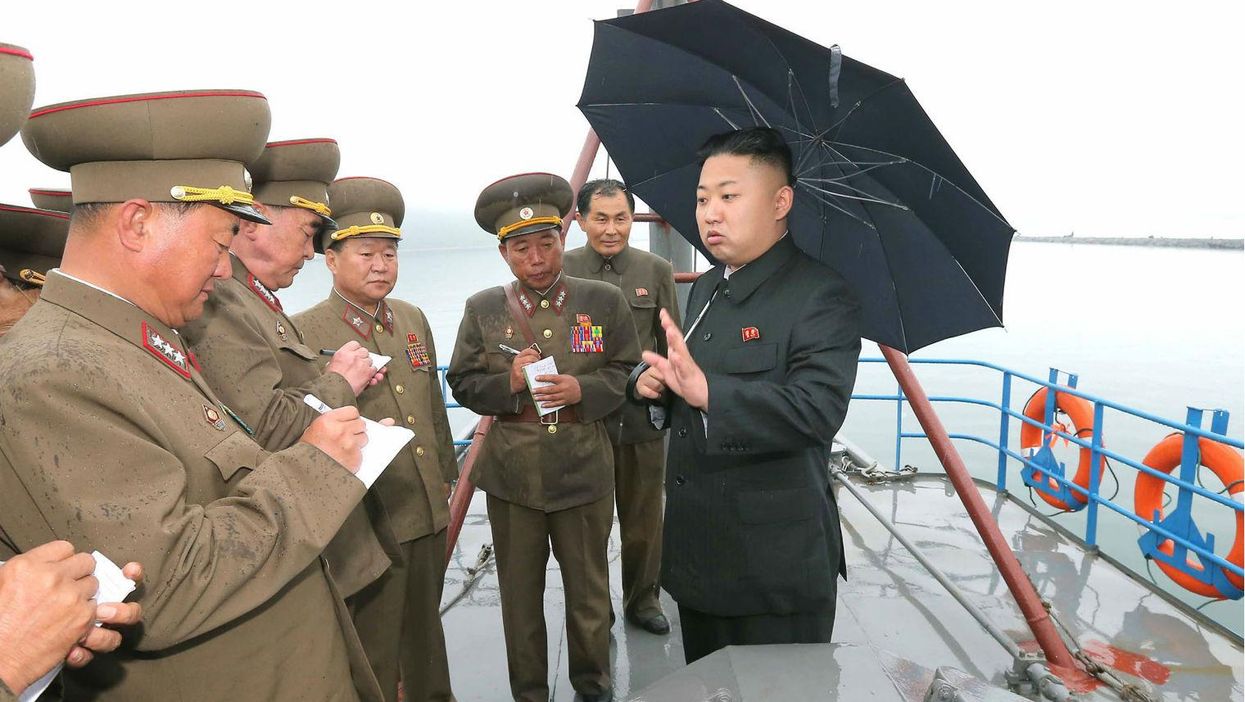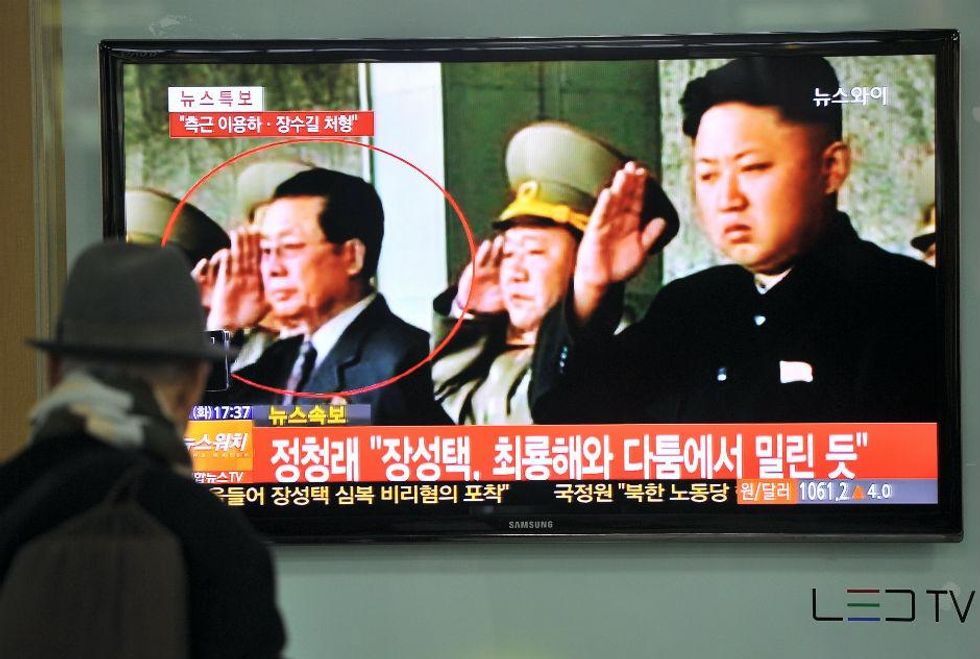News
Evan Bartlett
May 13, 2015

On Tuesday morning, unconfirmed reports emerged suggesting that the North Korean defence minister Hyon Yong-chol had been executed in public with an anti-aircraft gun.
Although that would appear to be an unnecessarily brutal way to put someone to death, it is by no means the first report of heinous depravity to emerge from the country.
In years gone by, particularly since the accession to power of Kim Jong-un, the treatment of dissidents in North Korea has been likened to that of the Nazis.
A UN report in 2013 explained: "Public executions are one of the dreadful tools employed in the implementation of the Kim Jong-un regime's 'fearpolitik'.”
However, some reports, like one that suggested Kim had fed his own uncle, Jang Song-thaek, to a pack of hunting dogs, have since been proven false.
Nevertheless, others continue to surface and are quick to spread around the world, further entrenching the totalitarian regime's reputation for evil.
On Tuesday, one of the most senior officials to defect from the country alleged that Kim had poisoned his own aunt. Another from April of last year said that a senior official had been put to death by flamethrower, and another that a female prisoner's baby was cooked and fed to dogs.
With the country near-impenetrable to international media, leaving us reliant on second hand accounts and information from foreign intelligence services, we asked three experts on North Korea to explain to us just how much truth there is to the rumours, where they originate from and whether we're all too quick to believe anything we read about the "Hermit Kingdom".
Here's what they said:
John Swenson-Wright - Head, Asia Programme, Chatham House
Death by anti-aircraft gun sounds implausible, but this form of execution is plausible - unlike the pack of dogs story. Removing all physical trace of an individual has been a pattern in past executions - Jang Song-thaek for example - and typically this can be carried out by a firing squad armed with machine-guns; the anti-aircraft gun mode is not one I've seen before, but it's plausible.
The semi-public nature of the executions may be intended to reinforce a climate of fear and is, therefore, indicative of the young leader’s desire to solidify his power base.
It's also consistent with the recent push to reinforce the military dimension of his rule - in contrast to economic reform - and suggest a hardening of the government’s line away from negotiation in favour of a faster pace of military development, including expanding the North’s nuclear arsenal.
Frank Feinstein - Chief Technical Officer, NK News/KCNA Watch
The problem with North Korea is that you often get tabloids running with these outlandish stories which then turn out to be false. Then you get one which is actually true... It's normally impossible to confirm.
This story [anti-aircraft gun] comes straight from South Korean intelligence sources. They have made claims like this before and been flat out wrong. However most of the time they are on target. South Korean intel also has a history of attempting to manipulate the way world media (read: Western media) reports North Korea, and have a vested interest in these sorts of articles being published. However this doesn't mean it isn't true. South Korean intel keep the closest eye on North Korea of anyone.
Stories like this are a perfect example of the problems reporting on North Korea: it's impossible to confirm anything.
When Jang Song-thaek was executed rumours abounded that he was eaten alive by a pack of military dogs. This story actually started in China, and somehow made it past their communist party censorship mechanisms, perhaps to show disapproval with North Korea. The Western media ran with it some weeks later. In reality, they most likely just shot him.
Remco Breuker - professor of Korean studies at Leiden University
To a certain extent, we are willing to believe just about anything about North Korea. The country provides a perfect screen upon which to project our fears, fantasies, and hopes.
The story that Kim Jong-un had his own aunt poisoned is a case in point. It turned out to be not true this morning. The execution of Jang Song-thaek by a pack of hungry dogs turned out to be a hoax by a Chinese satirical blogger.
I do not know if Hyon was executed by anti-aircraft missiles. I do know that such executions have happened in the past. The only reason I can think of for such executions is that the state thinks it will deter others from stepping out of line.
The story of the execution was brought by the South Korean NIS [National Intelligence Service], but they are usually reliable when they release info such as this. I don't think this is part of an anti-North Korea campaign or anything. It is a state that habitually executes its citizens.
Having said that there is a clear thirst for North Korea horror stories in the international world.
The thing we should be focusing on, I think, is that a minister of defence, while still in function, was executed. As the person responsible for the implemention of the 'Military First' ideology in North Korea - the ideology by which the regime legitimises martial law as being normal - you have to wonder what this execution does to the credibility of the 'Military First' ideology. It feels akin to the damage the Kim cult sustained when Kim's uncle [Jang Song-thaek] was publicly purged.
The other thing to focus on is the reason Hyon was purged. Not that it is the true reason - falling asleep in the presence of the Leader - but it means the purge was orchestrated by the department responsible for the enforcement of party organisational life, the OGD [Organisation and Guidance Department], who are also the real decision-makers in North Korea. This is their language and as such it is important.
More: Kim Jong-un's prolonged disappearance could be evidence that he's been deposed as leader
Top 100
The Conversation (0)
x














